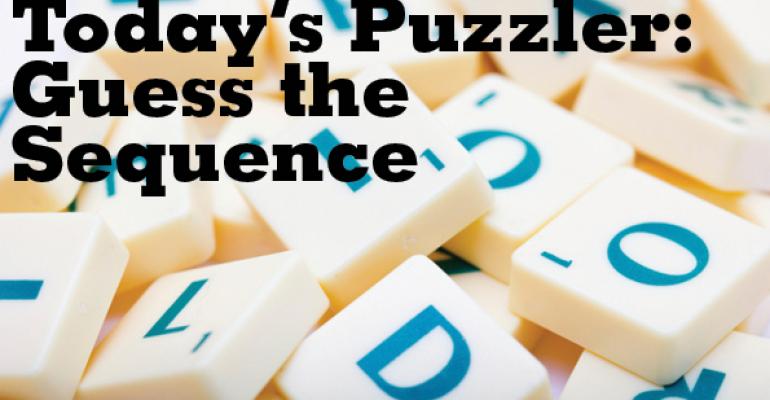This Month’s Contest: Guess The Sequence
Can you determine the final letter in the following sequence?
Y Y H L Y E Y T R R R ??
Hint: This is a brainteaser. The puzzle requires a mental leap, not math. Please email your solution to John Kador at [email protected] using the subject line “Sequence.” Deadline is Jan. 1, 2014. One entrant with the correct answer (or a creative alternative) will receive a signed copy of John Kador’s How to Ace the Brainteaser Job Interview. Good luck to all.
Brainteaser #2: Missing Time
Can you fill in the time that is missing from the following list of clock times?
1:38, 2:44, 3:49, 4:55, ?????, 7:05, 8:11, 9:16, 10:22, 11:27, 12:33
Solution below.
Solution to Missing Time: 6:00. This brainteaser was undoubtedly easier when everyone had analog clocks and watches. The 11 times of the puzzle would stand out on an analog clock face as those occasions when the hour hand and the minute hand point in precisely opposite directions.
Solution to previous puzzler: C Note
To recap: You have a piece of paper and a bunch of blue and red pens. Start with a blue pen and write down all the positive integers in order by spelling them out correctly using the English alphabet: ONE, TWO, THREE, FOUR, etc. Use a red pen the first time you encounter the letter “C”. Assuming that it takes 10 seconds on average to spell out each integer, how long will it be before you need the red pen?
We received over 50 correct responses. The winner is Bradley R. Britton, vice president of investments, UBS Financial Services, in Salt Lake City, Utah. His solution:
The first positive integer that uses the letter “C” is one octillion, or 1 with 27 zeros. At an average of 10 seconds per integer, it would take 10 octillion seconds, or 317,097,919,837,646,000,000 years.
Congratulations to Bradley Britton and thanks to all for playing.


